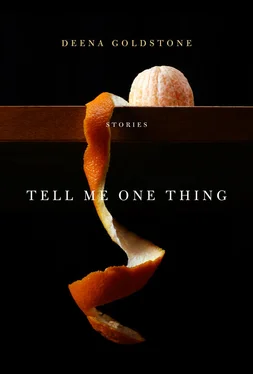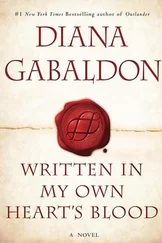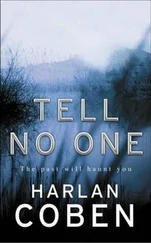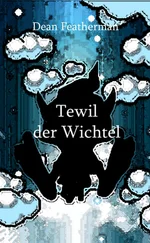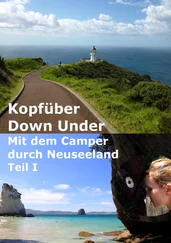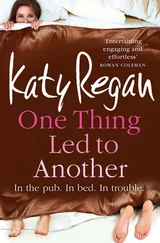Jamie tries for a minute to imagine his father in this room watching over one of his children, and he knows immediately that his father would never be here or anywhere near a hospital. When Marianne, the youngest of them and the favored, was tiny, she got in the way of one of her older brothers as he was carrying a large pot of spaghetti from stove to sink. She was burned very badly. Second- and third-degree burns over her chest and legs and in the hospital for weeks and weeks, Jamie remembers. His mother went every day and sat by Marianne’s crib and read to her from the worn children’s books that were always piled in an old basket in the basement of their brick house. But his father never came. There were excuses—“I’m working overtime to keep you kids in Catholic school,” or “Your mother does the visiting for both of us”—but even then, when he was just twelve years old, Jamie thought his father was a coward. He couldn’t face the hospital and the sight of Marianne bandaged and whimpering in pain.
Jamie remembers his parents standing in their old kitchen, which was narrow and cramped like the whole house. And, like the whole house, it was filled up with useless stuff — ceramic figurines and broken sports equipment piled in a corner, discarded clothes thrown across chair backs, and Christmas decorations that have never been put away. It’s early morning and his mother is packing lunches for himself and Ellen.
His father is wearing his white overalls with the name “O’Connor Plumbing” on the back in brown script, and he’s pouring hot coffee into a large thermos.
She wants to see you, Hugh , his mother is saying in his memory.
Aw, she’ll see enough of me when she comes on home .
Just a few minutes would do her a world of good .
You tell her that I love her . His father is grabbing his heavy plaid jacket, preparing to leave.
Hugh , his mother says, and this is as close to a rebuke as she ever gets, the child’s two years old .
Don’t tell me I don’t know how old my children are . Hugh is angry. He slams the back door as he leaves.
No, Jamie knows with certainty, his father would never show up in the intensive-care unit and hold the hand of his daughter and plead with her to live. To wake up and live.
SOMETIMES JAMIE AND CELESTE’S FATHER talk about mundane things. It is an escape route from the surrealism of where they are. And the stories pull them both back to a time before Jamie’s sister turned his car into a lethal weapon and before Celeste lay supremely helpless in a hospital bed. Chet talks about how the family he works for, the Swensons, has transformed what had been for generations a working horse and cattle ranch into what is euphemistically called a “guest ranch.” Chet spits out the two words. Jamie doesn’t have to ask him how he feels about the transition.
“Now we have to take these people along when we move the cattle from one pasture to the next or let ’em watch the colt training or drop what we’re supposed to be doing and take them out on a ‘ride,’ as if that’s an activity, ‘a ride.’ That’s how we get from place to place — on a horse. It’s not an activity.”
Jamie smiles slightly. He can’t help it. Chet is so indignant.
“You ever been on a horse?”
“No. I’m a city boy. From Buffalo.”
“Well, let me tell you — you have a relationship with a horse, a real one, then you don’t need many people in your life.”
“I’ve gotten to that point without the horse,” Jamie says, grinning.
“I thought so.”
ONE NIGHT, WELL AFTER MIDNIGHT, Chet starts to talk about what Celeste was like as a child. How she took to all the ranch life like a natural. How she could ride well by the time she was four. How, when she got older, she loved to help him in the spring, during foaling season. That they’d stay up all night together if a mare was having a hard time and Celeste would never complain. And about how excited she’d get when the foal was finally born. She always said it was worth it, the long hours, the cold in the middle of the night, because Look , she’d say, Dad, look what we got!
That’s why, Chet admits to Jamie, he couldn’t understand her need to go so far away for college. She insisted she had to be somewhere she could see the ocean. That was the criterion — not how good the school was, or how much it cost, or how big or small it was, just that the ocean be nearby. Like there was some magical pull to be near the sea.
“That’s what we do,” Jamie tells Chet, “we find the opposite and we move toward it. It’s part of finding yourself.”
“Celeste was herself. More than anyone I ever knew.”
“That was one self,” Jamie says quietly, “the one who was your daughter and who lived on a horse ranch in Montana and had never been to the West Coast. She needed to find other selves. That you didn’t know, precisely because you didn’t know them … It’s what they’re supposed to do in order to grow up.”
Chet is silent a long time. He watches his daughter’s face as if the answer is there, but not so much as an eyelash flutters. Then Chet asks in a harsh whisper, “Then it wasn’t me?”
“No,” says Jamie without equivocation, even though he’s just met this man and has never spoken a word to his daughter. He knows that the right answer is “no” and he says it again, firmly. And he sees Chet sigh with what Jamie interprets as relief.
“HOW DO YOU KNOW SO MUCH about what teenage girls have to do?” Chet asks him later that night, after he’s had time to mull over what Jamie has told him.
“I don’t really, but I’ve been teaching middle school for thirteen years now, and you pick up some things just from being around them so much.”
“What do you teach?” Another personal question from Chet.
“English.”
“And you like it?”
“It saves my life.”
Chet nods. He understands how something can do that. He knows that without the horses he wouldn’t be much alive.
“And the rest?”
“There is no ‘rest.’ ” Jamie shrugs, a bit embarrassed but he says it anyway. “Just an old-fashioned Irish bachelor.”
“That mean you’re gay?”
At that Jamie laughs softly, not offended as Chet feared. “No, that means I’ve never married and don’t really see any chance of it.”
Maybe it’s the late hour. Maybe it’s the exhaustion of too many nights spent here in the ICU. Probably it’s the sanctuary of Celeste’s room, but Jamie finds himself doing something he never does. He begins to talk about himself, about his past. About his father’s drinking and his brutality. About his mother’s complicity even though she never lifted a hand to any of them. About how she refused to intervene between his father’s titanic rages and any one of her children.
It’s time for Jamie to go. To return to his condo, grab a quick shower, and get to school. He stands and stretches. The two men have been sitting there for five hours.
“That’s all three thousand miles and twenty-five years ago. Now,” he says, “I’m doing the best I can.” Jamie isn’t sure, even as he says it, whether it’s the truth.
ON A THURSDAY NIGHT SOMEWHERE BETWEEN eleven and midnight, when Jamie arrives in the ICU, he finds Chet pacing outside Celeste’s room. All the curtains are drawn and it’s impossible to know what’s going on, but he can immediately see that Chet is upset.
“What’s happening?”
“She’s thrashing around in there.”
“She is?” Jamie is stunned. He hasn’t seen her so much as move a finger. “What are they doing with her?”
“Giving her some kind of test to figure out what’s going on.”
Читать дальше
